Arts & Entertainment
Nationwide virtual celebration to prove COVID ‘Can’t Cancel Pride’
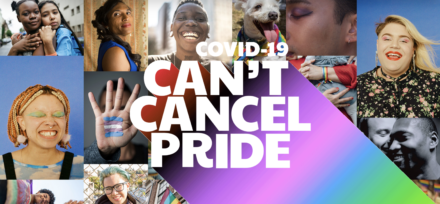
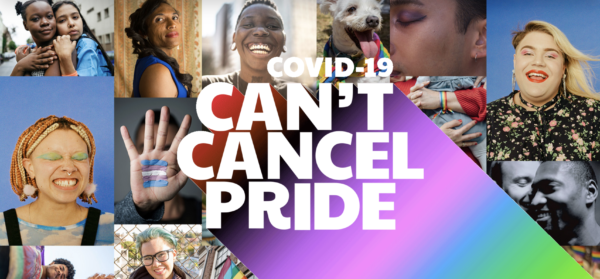
Even if COVID-19 has interrupted planned in-person events around the world, we are still in the middle of Pride Month, and the feeling is strong – especially in light of Monday’s historic (and unexpected) Supreme Court decision that sexual orientation and gender identity are covered by Title VII protections barring discrimination in the workplace on the basis of sex, a landmark victory in the struggle for LGBTQ+ equality.
Just in time to meet the upswell in community high spirits, Procter & Gamble and iHeartMedia are inviting people everywhere to join “Can’t Cancel Pride: A COVID-19 Relief Benefit for the LGBTQ+ Community,” a virtual event demonstrating that even though we can’t come together this year to celebrate in the traditional way, nothing can cancel the heart of Pride and the spirit the LGBTQ+ equality movement embodies.
A virtual relief benefit designed to help raise visibility and funds for LGBTQ+ communities most impacted by COVID-19, “Can’t Cancel Pride” will bring together some of the biggest names in Queer culture and entertainment, including Adam Lambert, Big Freedia, Billy Porter, Katy Perry, Kim Petras, Melissa Etheridge, Sia, Ricky Martin and more, with brands like Bounty, Charmin, Dawn, Downy, Jared, Pantene and Tide on board to support the event, in an effort to drive LGBTQ+ visibility and bring together the community of millions unable to take part in live Pride events across the country.
The celebration will culminate with a one-hour special, hosted by leading iHeartMedia on-air personality Elvis Duran alongside actress and LGBTQ+ advocate Laverne Cox. It will stream on iHeartRadio’s Facebook and Instagram pages and iHeartRadio’s PrideRadio.com, as well as broadcasting on iHeartMedia stations nationwide (and on the iHeartRadio app) June 25 at 9 pm local time.
While “Can’t Cancel Pride” is definitely designed to serve up festivities for the season at home, it’s also meant to serve a second and very important function. With COVID-19 still exerting a damaging effect on the usual fund-raising efforts LGBTQ+ organizations rely on to survive, the community is facing loss of livelihoods, lack of access to critical life-affirming healthcare, increased domestic violence and social isolation, with many of the organizations they count on for these services on the brink of disaster – potentially setting the movement back decades.
P & G’s Chief Brand Officer, Marc Pritchard, says, “The COVID-19 pandemic has exposed the complex and significant obstacles facing the LGBTQ+ community. We must continue to fight hate and intolerance against all people while redoubling our efforts to elevate LGBTQ+ visibility and providing support for those in need. ‘Can’t Cancel Pride’ is about showing the community that they are not alone and that they are seen and loved, as the pandemic has led to the closure of closed community centers and support systems that millions of LGBTQ+ people rely on every day.”
“There’s no question COVID-19 has impacted the LGBTQ+ community in a variety of ways, and at this time in the U.S., the struggle for equality and inclusion has never been more important,” says. Gayle Troberman, Chief Marketing Officer for iHeartMedia. “Now is a time we need to come together to support the organizations that help bring critical resources to LGBTQ people in need and ‘Can’t Cancel Pride’aims to do just that. Like always, Pride will continue to represent the resilience, beauty and strength of the LGBTQ+ community around the nation and the globe.”
Rob Smith, Founder and CEO of The Phluid Project and a member of the ‘Can’t Cancel Pride’ advisory committee, adds, “This is a unique opportunity to focus on the heart and soul of the community and the movement we serve across the country, allowing access for everyone. Celebrating virtually affords us the opportunity to touch people in communities across the country and ensure that we are broadly able to showcase the incredible diversity and intersectionality of the LGBTQ+ community.”
The event has partnered with The Greater Cincinnati Foundation to administer and distribute financial support raised by the event to LGBTQ+ organizations with a track record of positive impact and support of the LGBTQ+ community, including GLAAD, SAGE, The Trevor Project, the National Black Justice Coalition, CenterLink and OutRight Action International.
And if Pride doesn’t feel like Pride to you without sharing those cute selfies on social mesia, “Can’t Cancel Pride” is encouraging viewers to share their special Pride moments using the hashtag #CantCancelPride throughout the month of June.
For more information and the latest “Can’t Cancel Pride” news – and to donate – visit cantcancelpride.com or text “RAINBOW” to 56512.
Sports
US wins Olympic gold medal in women’s hockey
Team captain Hilary Knight proposed to girlfriend on Wednesday

The U.S. women’s hockey team on Thursday won a gold medal at the Milan Cortina Winter Olympics.
Team USA defeated Canada 2-1 in overtime. The game took place a day after Team USA captain Hilary Knight proposed to her girlfriend, Brittany Bowe, an Olympic speed skater.
Cayla Barnes and Alex Carpenter — Knight’s teammates — are also LGBTQ. They are among the more than 40 openly LGBTQ athletes who are competing in the games.
The Olympics will end on Sunday.
Movies
Radical reframing highlights the ‘Wuthering’ highs and lows of a classic
Emerald Fennell’s cinematic vision elicits strong reactions

If you’re a fan of “Wuthering Heights” — Emily Brontë’s oft-filmed 1847 novel about a doomed romance on the Yorkshire moors — it’s a given you’re going to have opinions about any new adaptation that comes along, but in the case of filmmaker Emerald Fennell’s new cinematic vision of this venerable classic, they’re probably going to be strong ones.
It’s nothing new, really. Brontë’s book has elicited controversy since its first publication, when it sparked outrage among Victorian readers over its tragic tale of thwarted lovers locked into an obsessive quest for revenge against each other, and has continued to shock generations of readers with its depictions of emotional cruelty and violent abuse, its dysfunctional relationships, and its grim portrait of a deeply-embedded class structure which perpetuates misery at every level of the social hierarchy.
It’s no wonder, then, that Fennell’s adaptation — a true “fangirl” appreciation project distinguished by the radical sensibilities which the third-time director brings to the mix — has become a flash point for social commentators whose main exposure to the tale has been flavored by decades of watered-down, romanticized “reinventions,” almost all of which omit large portions of the novel to selectively shape what’s left into a period tearjerker about star-crossed love, often distancing themselves from the raw emotional core of the story by adhering to generic tropes of “gothic romance” and rarely doing justice to the complexity of its characters — or, for that matter, its author’s deeper intentions.
Fennell’s version doesn’t exactly break that pattern; she, too, elides much of the novel’s sprawling plot to focus on the twisted entanglement between Catherine Earnshaw (Margot Robbie), daughter of the now-impoverished master of the titular estate (Martin Clunes), and Heathcliff (Jacob Elordi), a lowborn child of unknown background origin that has been “adopted” by her father as a servant in the household. Both subjected to the whims of the elder Earnshaw’s violent temper, they form a bond of mutual support in childhood which evolves, as they come of age, into something more; yet regardless of her feelings for him, Cathy — whose future status and security are at risk — chooses to marry Edgar Linton (Shazad Latif), the financially secure new owner of a neighboring estate. Heathcliff, devastated by her betrayal, leaves for parts unknown, only to return a few years later with a mysteriously-obtained fortune. Imposing himself into Cathy’s comfortable-but-joyless matrimony, he rekindles their now-forbidden passion and they become entwined in a torrid affair — even as he openly courts Linton’s naive ward Isabella (Alison Oliver) and plots to destroy the entire household from within. One might almost say that these two are the poster couple for the phrase “it’s complicated.” and it’s probably needless to say things don’t go well for anybody involved.
While there is more than enough material in “Wuthering Heights” that might easily be labeled as “problematic” in our contemporary judgments — like the fact that it’s a love story between two childhood friends, essentially raised as siblings, which becomes codependent and poisons every other relationship in their lives — the controversy over Fennell’s version has coalesced less around the content than her casting choices. When the project was announced, she drew criticism over the decision to cast Robbie (who also produced the film) opposite the younger Elordi. In the end, the casting works — though the age gap might be mildly distracting for some, both actors deliver superb performances, and the chemistry they exude soon renders it irrelevant.
Another controversy, however, is less easily dispelled. Though we never learn his true ethnic background, Brontë’s original text describes Heathcliff as having the appearance of “a dark-skinned gipsy” with “black fire” in his eyes; the character has typically been played by distinctly “Anglo” men, and consequently, many modern observers have expressed disappointment (and in some cases, full-blown outrage) over Fennel’s choice to use Elordi instead of putting an actor of color for the part, especially given the contemporary filter which she clearly chose for her interpretation for the novel.
In fact, it’s that modernized perspective — a view of history informed by social criticism, economic politics, feminist insight, and a sexual candor that would have shocked the prim Victorian readers of Brontë’s novel — that turns Fennell’s visually striking adaptation into more than just a comfortably romanticized period costume drama. From her very opening scene — a public hanging in the village where the death throes of the dangling body elicit lurid glee from the eagerly-gathered crowd — she makes it oppressively clear that the 18th-century was not a pleasant time to live; the brutality of the era is a primal force in her vision of the story, from the harrowing abuse that forges its lovers’ codependent bond, to the rigidly maintained class structure that compels even those in the higher echelons — especially women — into a kind of slavery to the system, to the inequities that fuel disloyalty among the vulnerable simply to preserve their own tenuous place in the hierarchy. It’s a battle for survival, if not of the fittest then of the most ruthless.
At the same time, she applies a distinctly 21st-century attitude of “sex-positivity” to evoke the appeal of carnality, not just for its own sake but as a taste of freedom; she even uses it to reframe Heathcliff’s cruel torment of Isabella by implying a consensual dom/sub relationship between them, offering a fragment of agency to a character typically relegated to the role of victim. Most crucially, of course, it permits Fennell to openly depict the sexuality of Cathy and Heathcliff as an experience of transgressive joy — albeit a tormented one — made perhaps even more irresistible (for them and for us) by the sense of rebellion that comes along with it.
Finally, while this “Wuthering Heights” may not have been the one to finally allow Heathcliff’s ambiguous racial identity to come to the forefront, Fennell does employ some “color-blind” casting — Latif is mixed-race (white and Pakistani) and Hong Chau, understated but profound in the crucial role of Nelly, Cathy’s longtime “paid companion,” is of Vietnamese descent — to illuminate the added pressures of being an “other” in a world weighted in favor of sameness.
Does all this contemporary hindsight into the fabric of Brontë’s epic novel make for a quintessential “Wuthering Heights?” Even allowing that such a thing were possible, probably not. While it presents a stylishly crafted and thrillingly cinematic take on this complex classic, richly enhanced by a superb and adventurous cast, it’s not likely to satisfy anyone looking for a faithful rendition, nor does it reveal a new angle from which the “romance” at its center looks anything other than toxic — indeed, it almost fetishizes the dysfunction. Even without the thorny debate around Heathcliff’s racial identity, there’s plenty here to prompt purists and revisionists alike to find fault with Fennell’s approach.
Yet for those looking for a new window into to this perennial classic, and who are comfortable with the radical flourish for which Fennell is already known, it’s an engrossing and intellectually stimulating exploration of this iconic story in a way that exchanges comfortable familiarity for unpredictable chaos — and for cinema fans, that’s more than enough reason to give “Wuthering Heights” a chance.
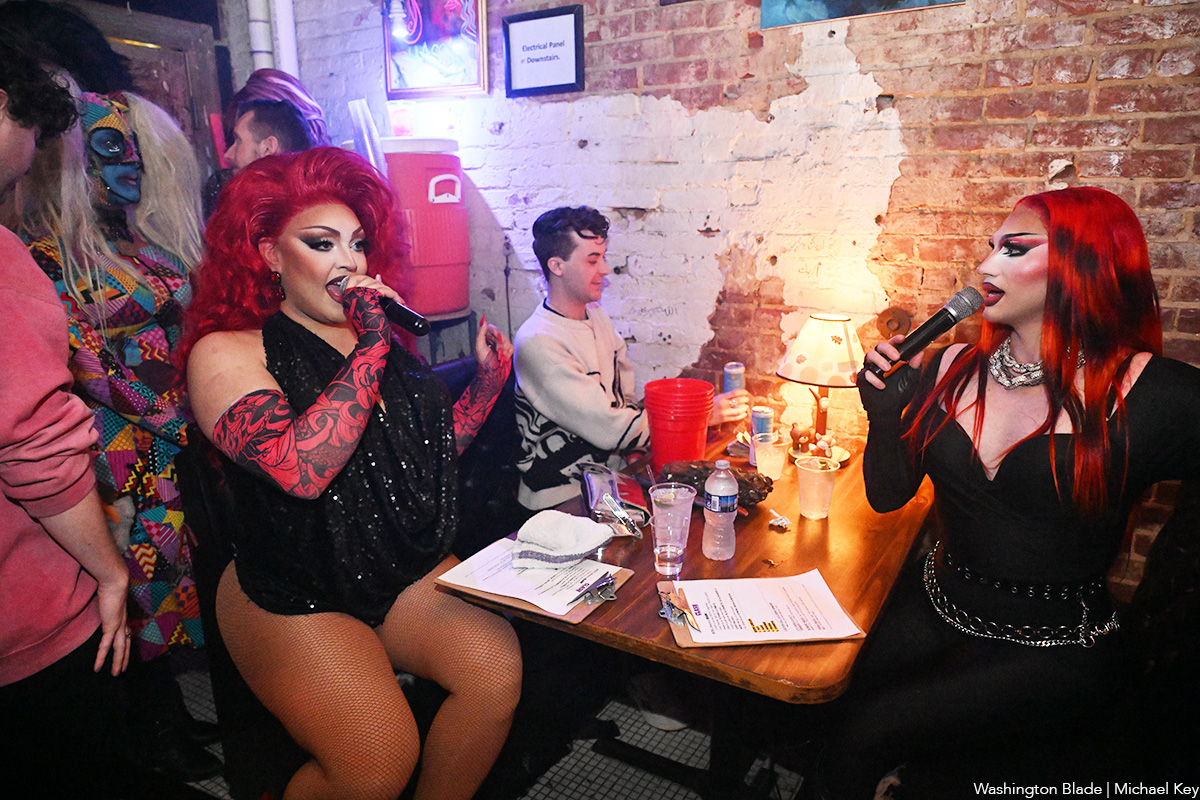
Crimsyn and Tatianna hosted the new weekly drag show Clash at Trade (1410 14th Street, N.W.) on Feb. 14, 2026. Performers included Aave, Crimsyn, Desiree Dik, and Tatianna.
(Washington Blade photos by Michael Key)
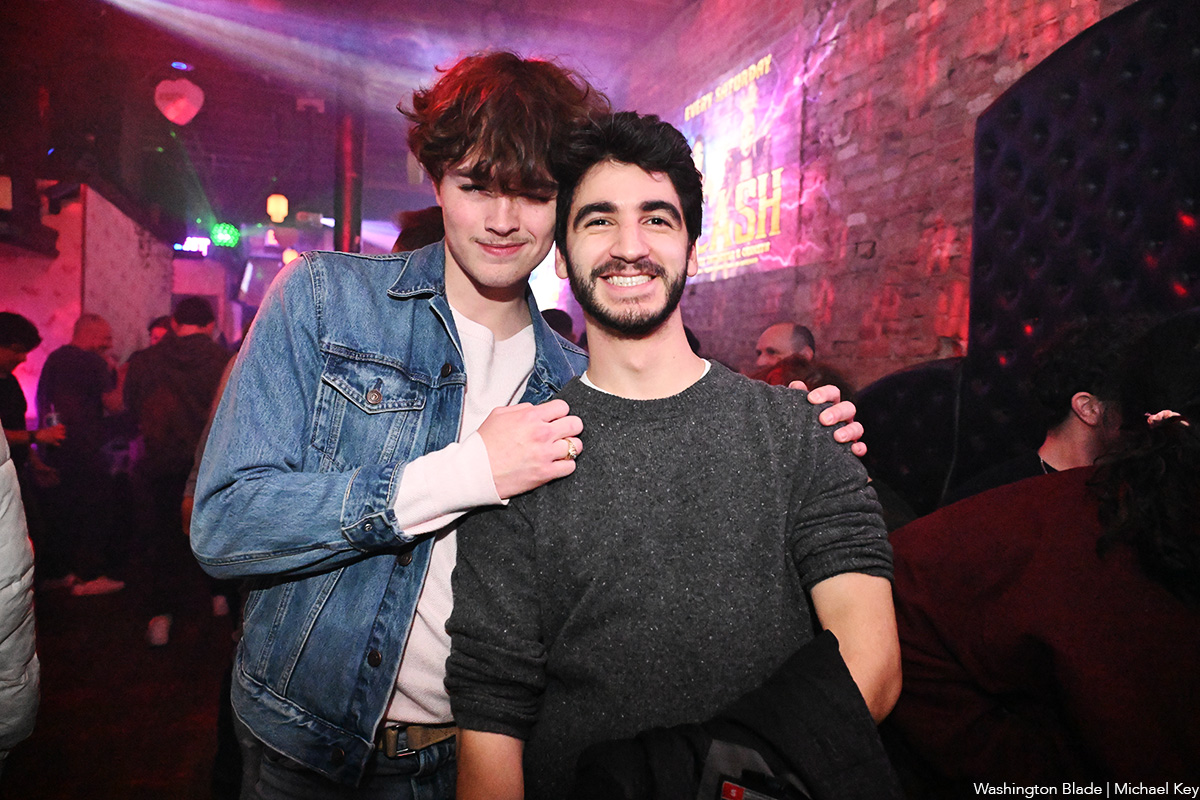
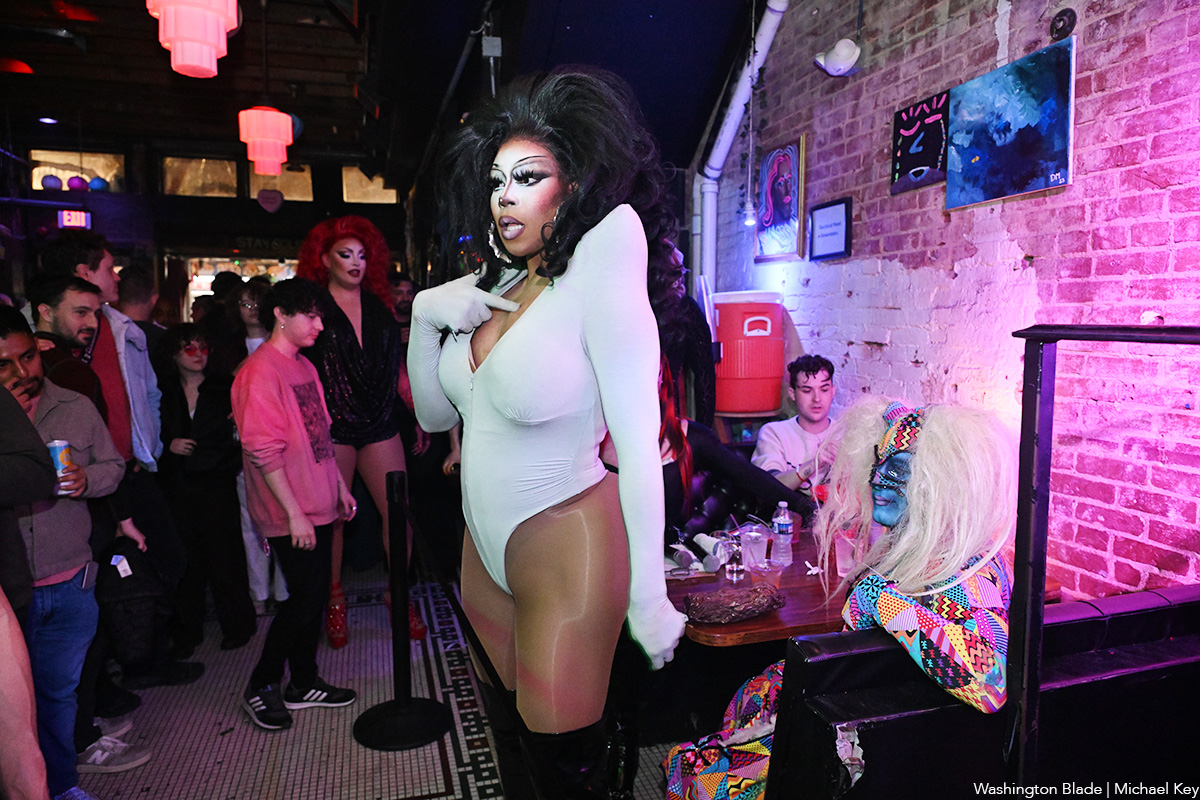
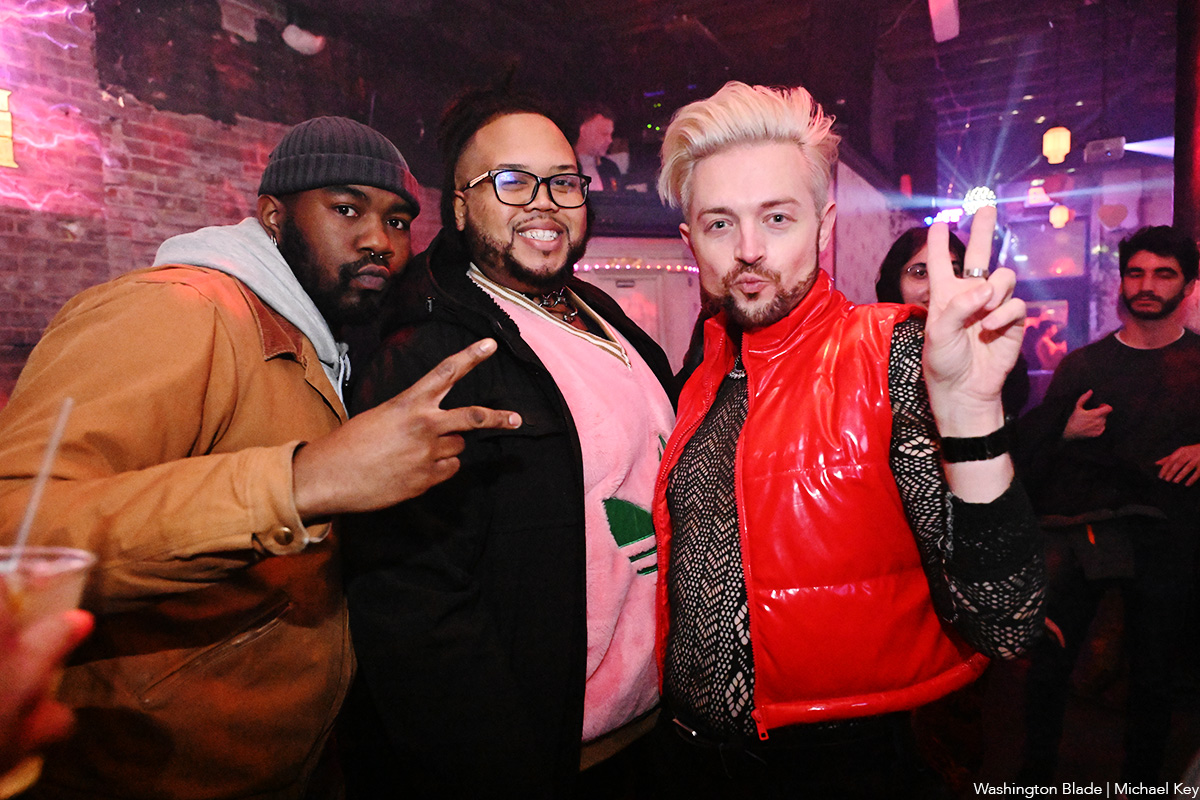
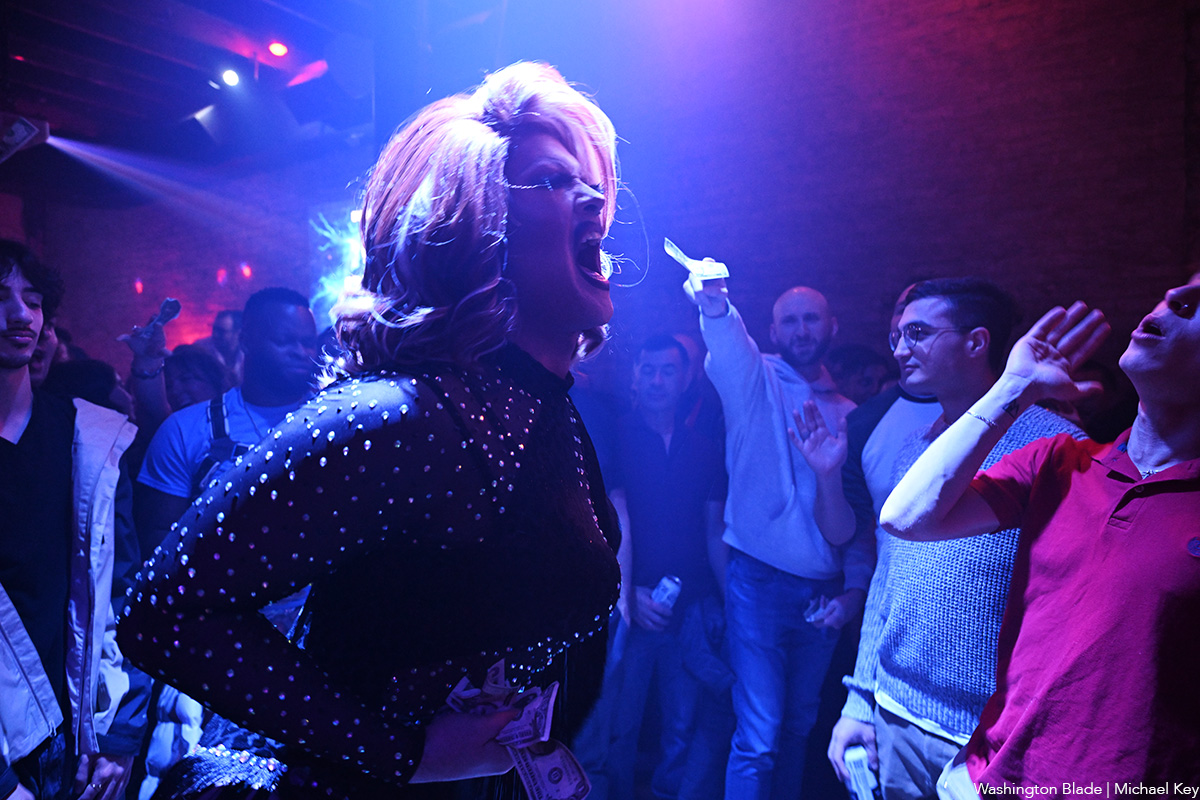

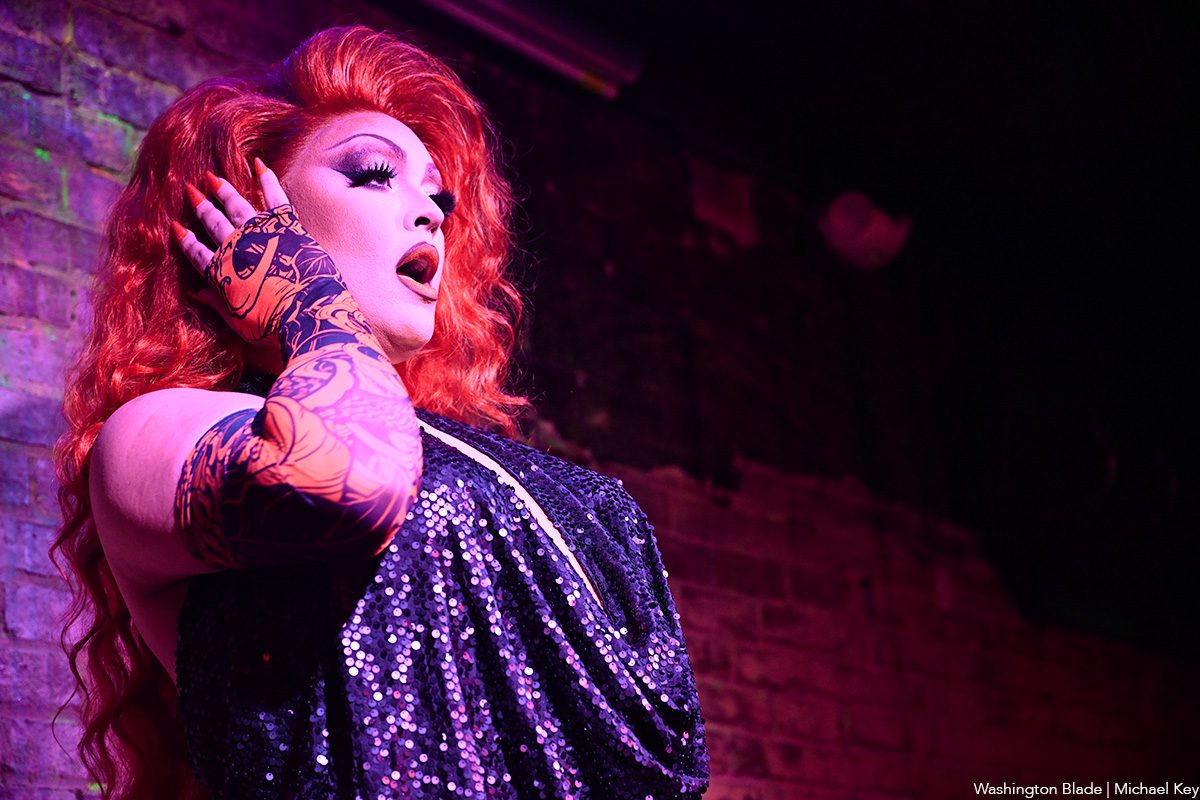
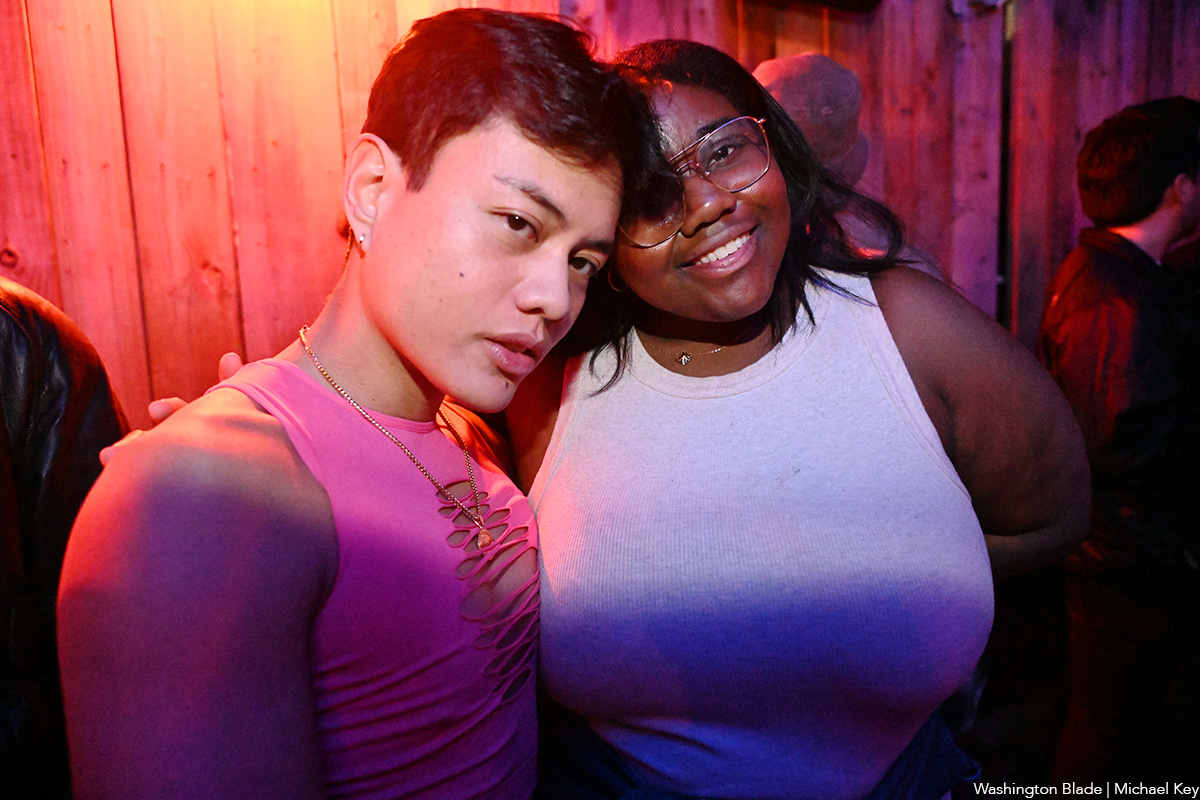
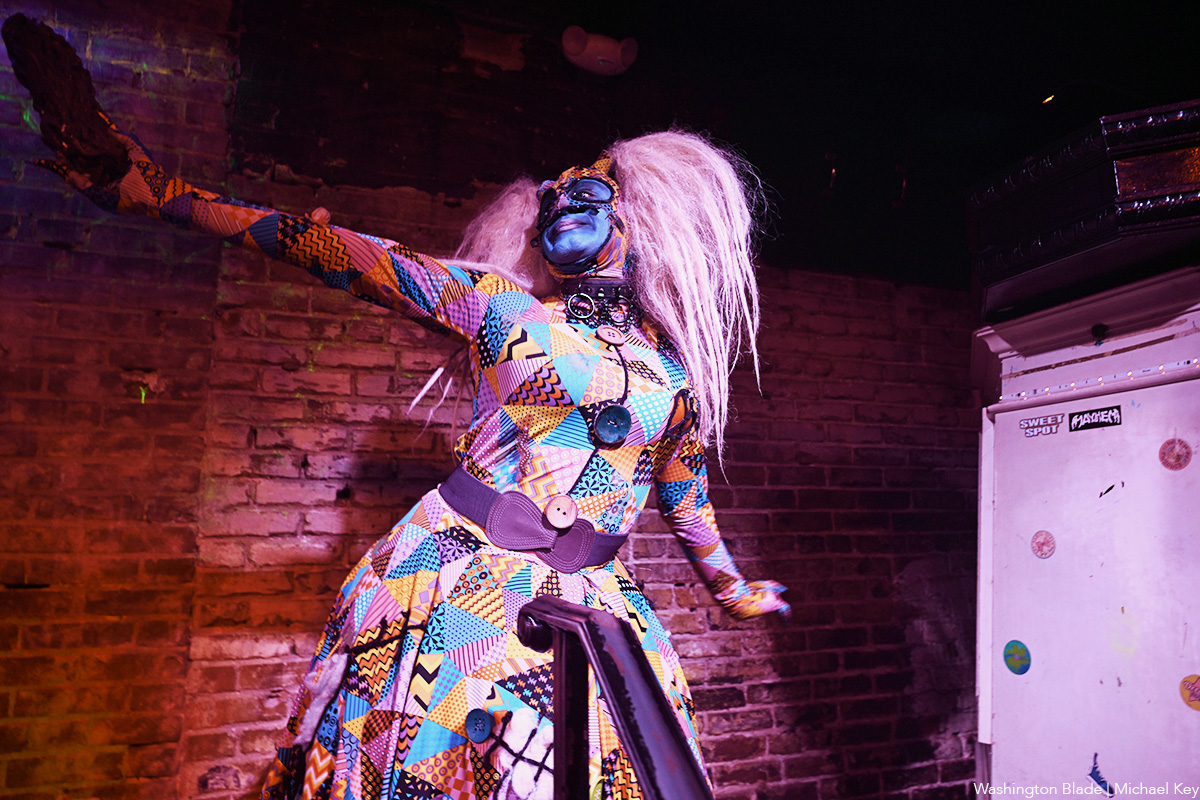
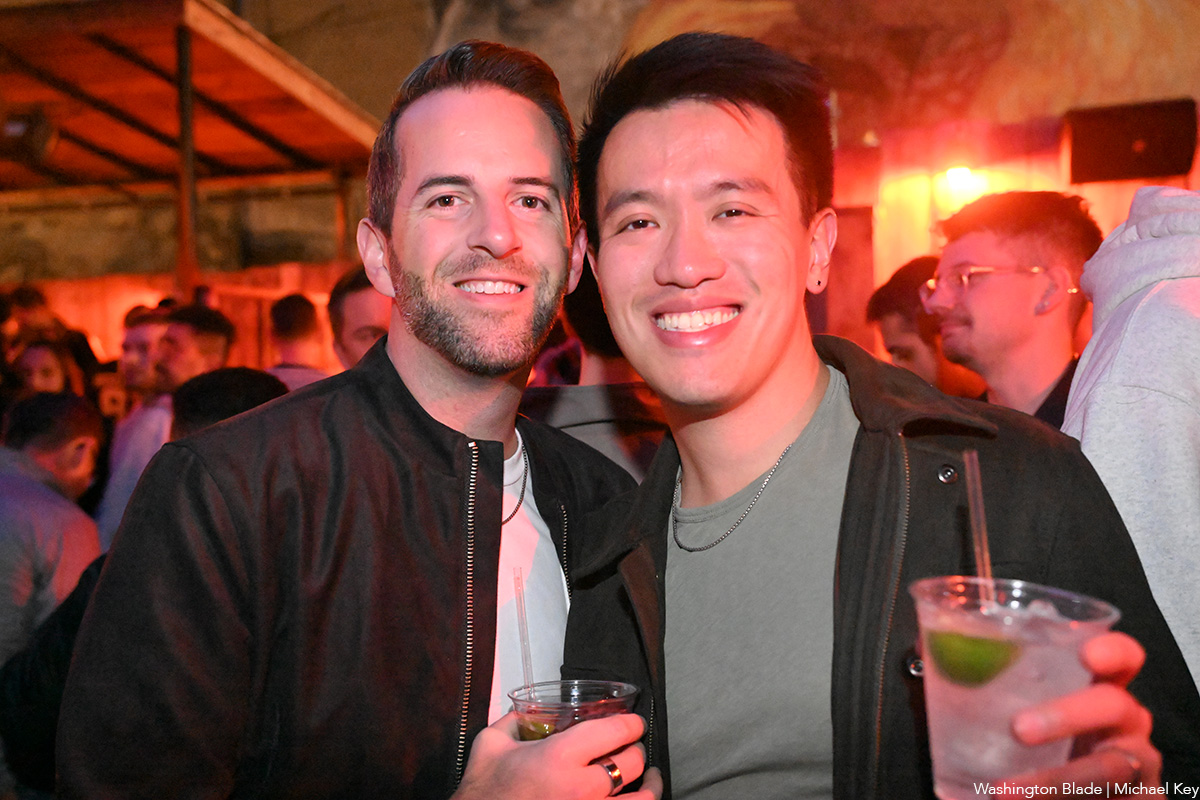
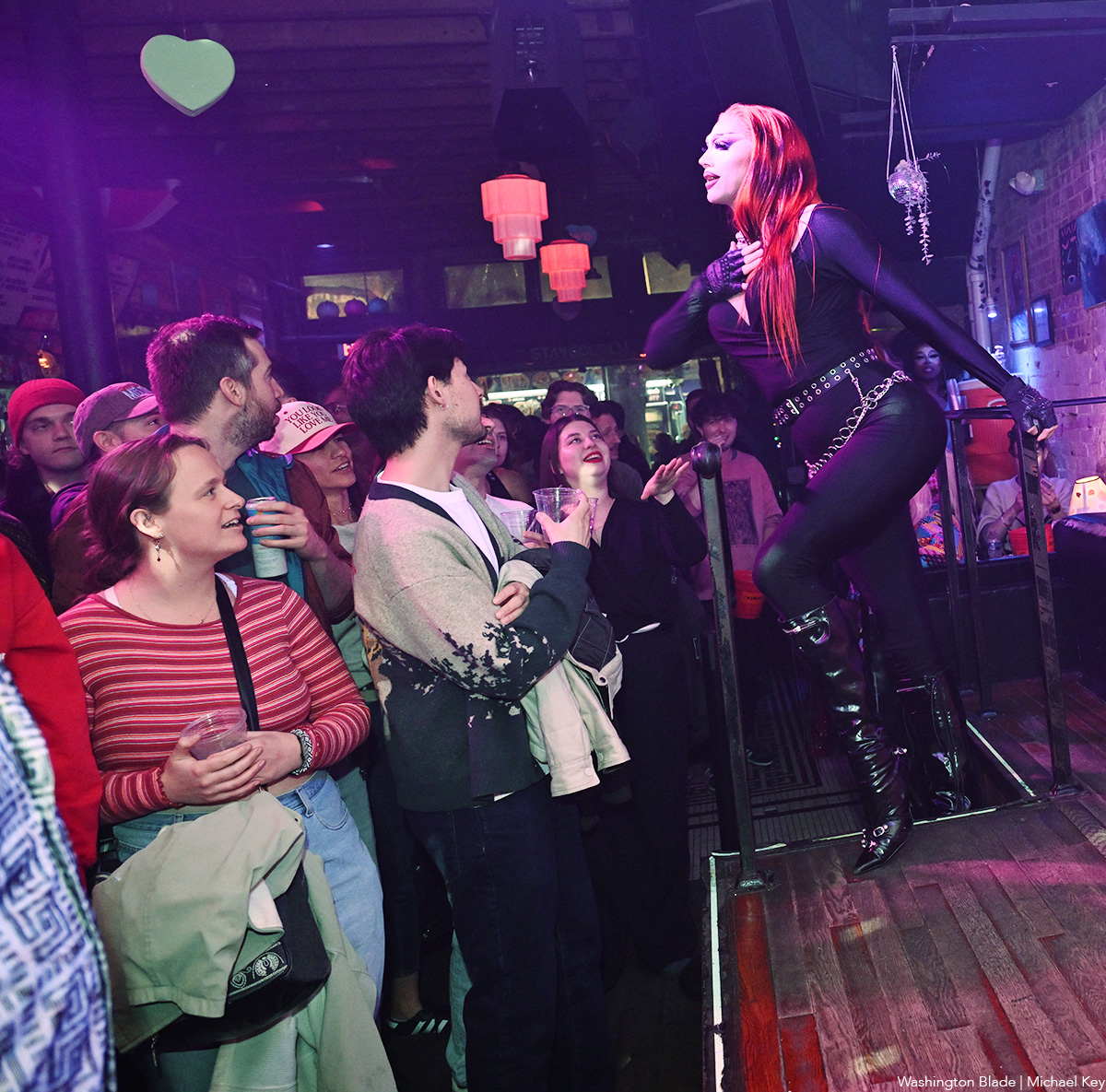
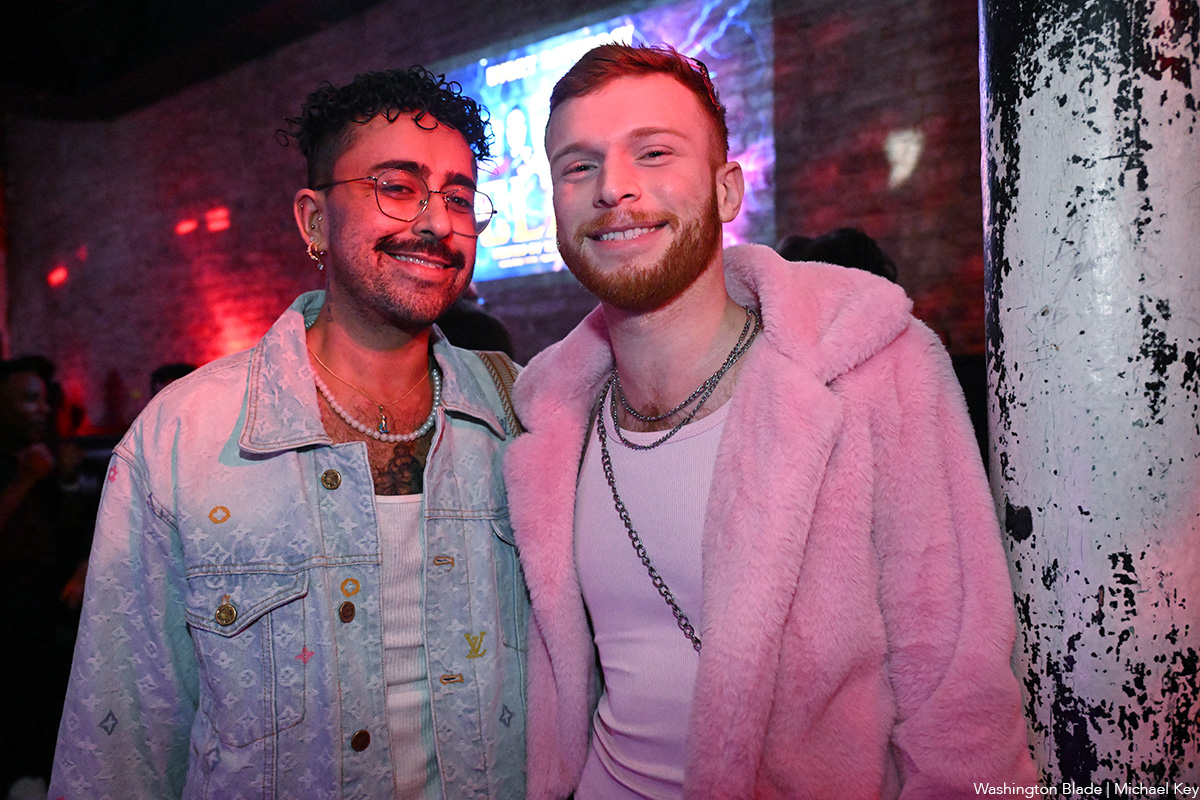
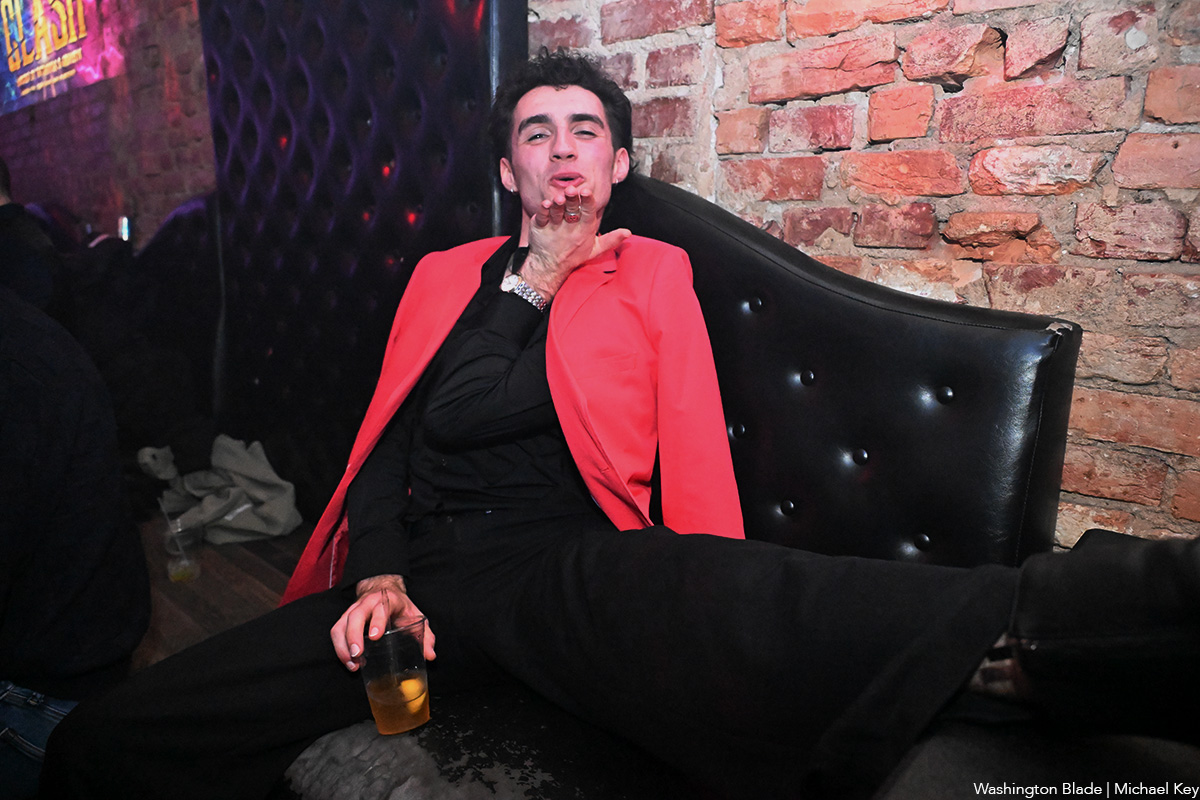
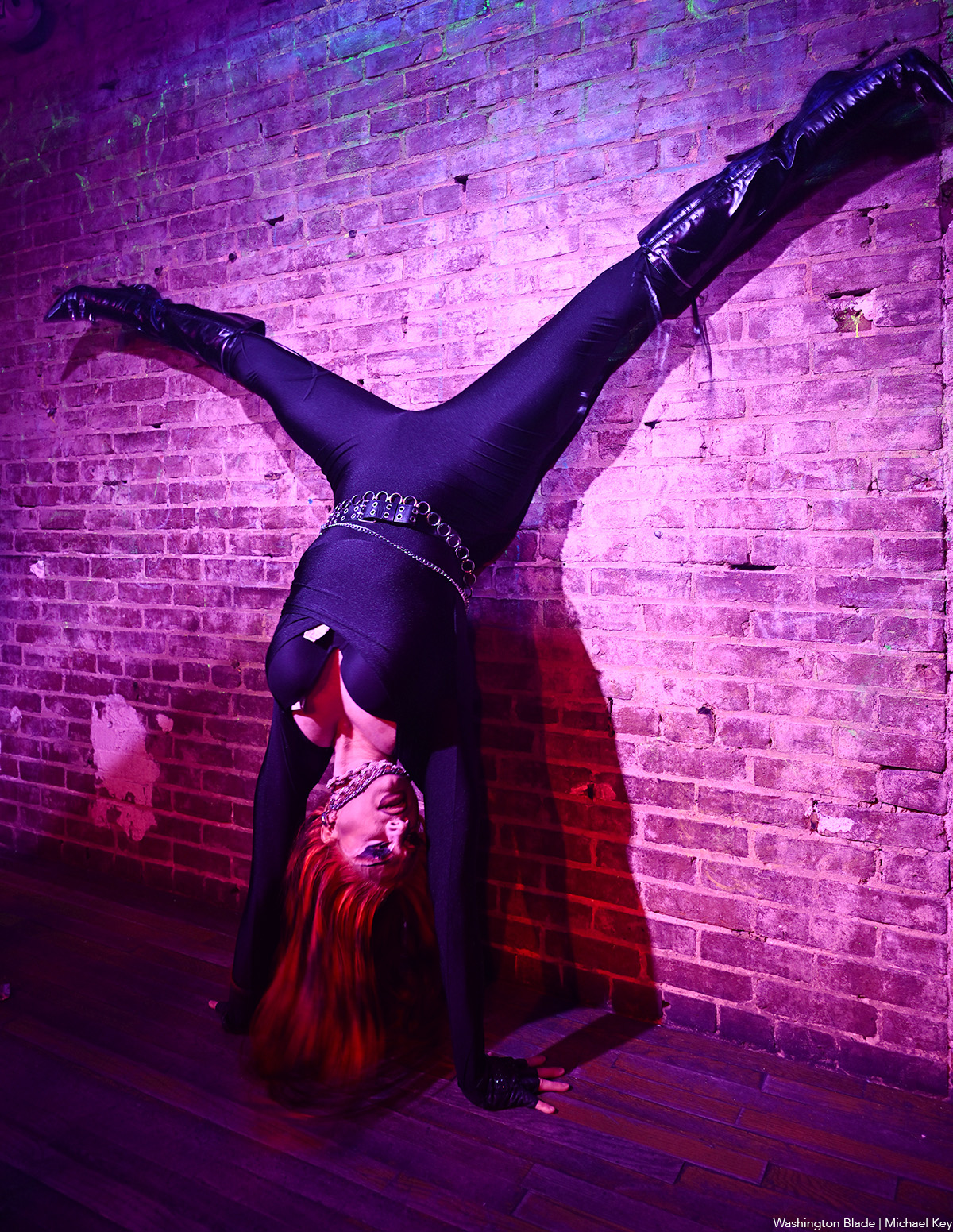
-

 Baltimore4 days ago
Baltimore4 days ago‘Heated Rivalry’ fandom exposes LGBTQ divide in Baltimore
-

 Real Estate4 days ago
Real Estate4 days agoHome is where the heart is
-

 District of Columbia4 days ago
District of Columbia4 days agoDeon Jones speaks about D.C. Department of Corrections bias lawsuit settlement
-

 European Union4 days ago
European Union4 days agoEuropean Parliament resolution backs ‘full recognition of trans women as women’




















